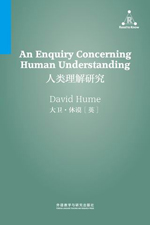笔记(共1972篇)
-
 黄晓宜
黄晓宜
-
 Jackson丶
Jackson丶
“clear the world of dragons and giants, never entertained the...” 全部笔记(1) 去书内
There is not a greater number of philosophical reasonings, displayed upon any subject, than those, which prove the existence of a Deity, and refute the fallacies of Atheists; and yet the most religious philosophers still dispute whether any man can be so blinded as to be a speculative atheist. How shall we reconcile these
-
sily丿
-
黄芷瑶
-
黄芷瑶
“I still insist, that they have aided the ascent of reason by...” 全部笔记(1) 去书内
Studies in Human Understanding consists of twelve chapters, concise, sharp, clear and circuitous. In the book, Hume elaborated on the problem of causality, and built a skeptical theoretical system based on it. Although he was very disappointed by the response to the theory of Human Nature, he still considers the Theory of Human Nature to be one of his most important works.
-
黄芷瑶
“a more impartial distribution of rewards and punishments must...” 全部笔记(1) 去书内
In addition, Hume also deeply analyzed the concept of necessity, which is nothing but a constant convergence of experienced images, without any intuitive or self-evident. He refuted miracles, argued that religion was not based on reason but on faith, and defended the Epicurean idea of natural ethics.
-
黄芷瑶
“Divinity or Theology, as it proves the existence of a Deity,...” 全部笔记(1) 去书内
In his book, Hume divides human perception into two categories: impressions and ideas. Impression is the most active perception, derived directly from rich and vivid sensory experience, while ideas are relatively inactive and are copies or recollections of impressions. He argued that all inferences of knowledge are based on causation, and that this relationship is merely a habit based on experience.
-
黄芷瑶
“Morals and criticism are not so properly objects of the...” 全部笔记(1) 去书内
Hume's empirical attitude is very clear, he does not think that the empirical way of reasoning has any rational place, only rely on the inertia of the human mind to gain trust. He pointed out that the constant connection of causality makes us accustomed to making the same judgments and behavioral trends as in previous experience, but without any rational reasoning process, and simply because such things occur in large numbers in past experience.
-
mankky
-
mankky



 京公网安备 11010802032529号
京公网安备 11010802032529号